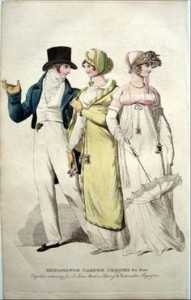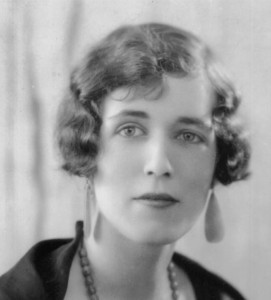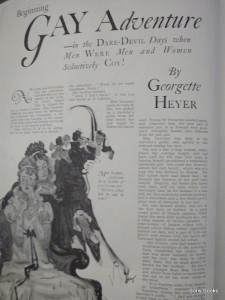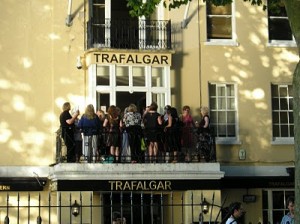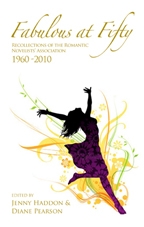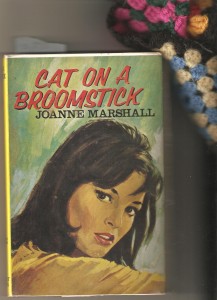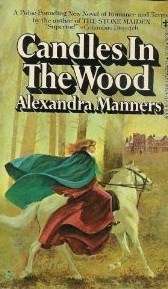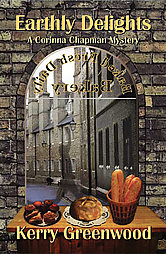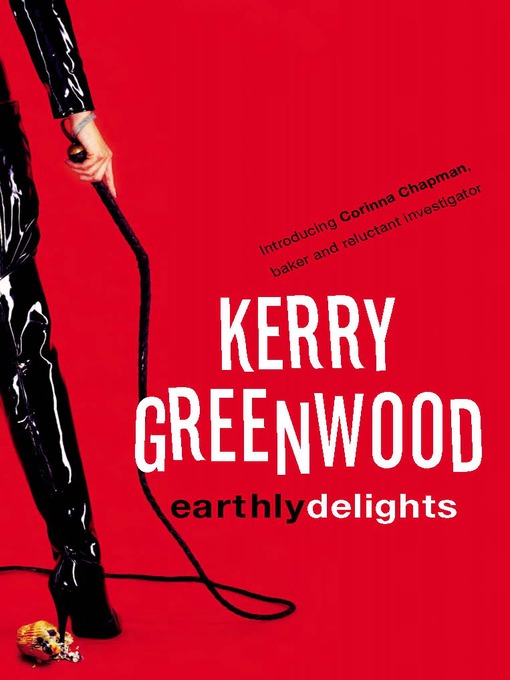Archive for the ‘Romantic novels’ Category
Georgette Heyer: The Space Between the Words
Re-reading Georgette Heyer’s work in advance of Blue Plaque Day has been an unexpected voyage of discovery. I’ve loved her books for ever, of course. But typing out an extract from AN INFAMOUS ARMY gave me a real jolt.
It is the morning of the battle of Waterloo. Some men, sleeping out in the cold and wet, have died in the night and everyone is sodden: old soldiers became busy drying their clothes and cleaning their arms; young soldiers stared over the dense mist in the valley to the ridge where the French were beginning to show themselves. Read it aloud, as I did. In two paragraphs she gets all the terror of the impending battle, the imminence of death, the fear of the raw recruits, the numbness of those who have been here before.
And I realised exactly what makes her such a brilliant writer for so many different sorts of readers. It’s in the things she doesn’t say. As Browning had it, she does the thing shall breed the thought. Then there comes that little electrical charge between what she has written and your imagination and suddenly, there you are, seeing what she saw, feeling what you feel.
Consider what Sarah McConnell was saying, in response to my last post, about that agonising scene in SPRIG MUSLIN. We readers have had a picture of Lady Hester – whose family think she’s a born spinster. She runs her father’s household and is regularly called in to nurse or babysit by her married sisters. She’s past the first blush of youth, not very pretty, turned down the only proposals of marriage she ever received and is really a bit vague. Then, suddenly, rich Sir Gareth Ludlow with whom she has been friends ever since his spirited first love died, proposes. She turns him down and he, being a reasonable man, sets out the advantages of the match: her situation is not happy, she would be at no one’s beck and call, with a position of the first consequence and a husband who would not make unreasonable demands.
‘You may be sure that I should always attend to your wishes, and hold you in respect and affection. Would that not mean a happier life than the one you live now?’
Her face was very white; she pulled her hand away, saying in a stifled voice: ‘No — anguish!’
This seemed so strange a thing for her to have said that he thought he could not have heard her aright. ‘I beg your pardon?’ he said blankly.
No more words but it’s all there: the pain of unrequited love and, worse, the sheer awful loneliness of pain unacknowledged and unacknowledgeable. In a sentence. God, she was good.
Or there’s my own favourite, the moment in FRIDAY’S CHILD — which up until then has been pure joy, as if Jane Austen had written Bertie Wooster — when the heroine runs away from her husband and his daft friends try to help her:
She bent her head, looking down at her tightly clasped hands. ‘Sherry – Sherry doesn’t love me, you see. He– he never did love me. If I had not been such a silly g-goose, I should not not have — For he never pretended that he loved me you know.’
George’s face twisted. He came quickly back into the room and laid his hands over both Hero’s and gripped them. ‘I know,’ he said in a moved voice.
She nodded. ‘Yes. I-I thought you did, George. So, you see . . . ‘
There was an uncomfortable silence.
And you see that they are not just daft any more, not even George Wrotham who has been stamping about like Lord Byron at his worst and generally making a cake of himself over the Beauty. The feelings are real. They hurt. You don’t want to spend too much time there, any more than you want to press on a bruise, but you know.
That was when it occurred to me – what a total gift to a film maker. The delicious prose, the mock heroic authorial comments, no you couldn’t put those on the screen. But these moments of truth coupled with some of the best dialogue outside Restoration Comedy or PG Wodehouse – what a treasure trove for a screen writer, for an actor.
Of course, those wonderful Georgette Heyer readers had got there first. There’s even an online petition you can sign. It had 1,238 signatures when I found it.
Now it’s got one more.
Georgette Heyer and her Readers
Fans of Georgette Heyer will feel a quiet sense of satisfaction at the news that English Heritage are to place one of their Blue Plaques on her first home in Wimbledon next month. It is another step towards the public acknowledgement of a truth which, if not yet held universally, has been acknowledged by countless people all round the world for a long, long time. She is a Treasure.
But, as is the case with so many Treasures, we can’t all agree why and, like every writer I know, she does have her detractors. (Shakespeare? Couldn’t plot for toffee. When people praised WS’s manuscript for his ‘never blotting out line’, Jonson wittily replied, ‘Would he had blotted a thousand.’ Killer punch there, Ben.)
Carmen Callil, a woman of whose publishing achievements I am in awe, allegedly opined that Heyer took Jane Eyre and rejigged it 57 times. Not true – Heyer never really hit the Gothick note. And even her most enigmatic and brooding hero has a sense of the ridiculous, which neither Mr Rochester nor Jane quite manages. But I completely see why a lively feminist publisher would take agin books in which the highest good to which the heroine aspires is marriage to an eligible –i.e. always wealthy, often titled — man.
More seriously, an Editorial Director I much admire told me a few years ago that Heyer had badly needed editing. I don’t know how that would have played with the strong-minded Heyer. From her career-long vituperative joust with the respected editor of Woman’s Journal, Dorothy Sutherland (who tried) I suspect that Heyer wouldn’t have put up with it. And if a publisher insisted, it might have shut her up for good. The loss doesn’t bear thinking about.
Mind you, Sutherland’s preferred title for Regency Buck wasn’t great, even without the connotations that have accrued to it since 1935. And her strap line? Words fail me.
–in the Dare-Devil Days when Men Were Men and Women Seductively Coy!
But I don’t mean to talk about my own opinions here. These are not my ideas, but those of her millions of readers. For since the Blue Plaque announcement, I have been trotting through the Forest of Internet in search of Heyer fans and found — well, overwhelmingly more than I expected. Of course there are the Heyer Appreciators, many of whom are to be found at Almacks. And from Mumsnet through The Guardian to Jane Austen blogs and uncountable numbers of bloggers — some loving her for ever, some just discovering her, some arguing furiously over where she did and didn’t do what they wanted (Smart Readers Trashy Books is really good at that) — Heyer’s work is considered seriously by a very high class of reader indeed. They are thoughtful, principled and often terrifyingly well- informed. I take my hat off to them.
So Miss Heyer’s readers say:
- she’s writes a cracking good story
- she’s witty and so are her characters
- in fact humour is the first reason many people read her
- romantic situations are well drawn, romantic satisfaction variable – but since some readers adore a book that others hate, that probably reflects temperamental differences as much as anything
- her style is a delight
- she takes you into a fully realised, detailed world
- her sense of period feels spot on
- her history is well-informed and perceptive – also accessible
- her characters have life, fire and principles, even when they’re not very good ones
- her secondary characters are all three dimensional, intrinsic to the story and sometimes delicious
- her books differ more widely than you’d expect or than she herself seems to have thought
- they re-read her, sometimes again and again, over their whole lives
- the good end happily in her books and if the bad don’t end badly, there is nevertheless a sense that justice has been done
- she gets you through bad times
- she both observes and explodes genre expectations (bit narrow this one, but it interests me, so I’ve bunged it in)
- she crosses generations – I noted how often the commentator found Heyer’s books on the shelf of a mother, grandmother, family friend or shared the long loved pleasure with a daughter or granddaughter.
- she is reticent, not just about her personal life but about the emotional development of her characters and their experience of falling in love. (I’m going to come back to this. I think it’s true, especially in her quieter books and I have come to like it. Some readers don’t so much.)
- she’s fun
- with substance
Attendance at the blue plaque unveiling is now up to capacity.
I’ll maintain a waiting list, if anyone would like to come and doesn’t mind waiting to see whether there’s room. Sorry about that, but delighted that so many people want to come and celebrate Georgette Heyer and her work.
*Byatt, A. S. “An Honourable Escape: Georgette Heyer.” Passions of the Mind: Selected Writings. London: Chatto & Windus, 1991. 258-65.
—. “The Ferocious Reticence of Georgette Heyer.” Sunday Times Magazine 5 Oct. 1975: 28-38. Rpt. In Georgette Heyer: A Critical Retrospective. Ed. Mary Fahnestock-Thomas. Saraland, AL: PrinnyWorld, 2001. 289-303.
Edit Write Tiffle
Thank you to lovely writer Christina Hollis for inviting me to join the My Writing Process Blog hop. It comes at an excellent time for me, as I am just considering how to edit the first draft of the longest novel I have every written. (About 5 Mills & Boons in wordage.) So it has concentrated the mind wonderfully.
Currently I’m writing a story set in 1938 when nobody knew there was going to be a war, though lots of people suspected it and tried to work out what they would do if it came. There is a love story – a big one, with problems of integrity, class and sexual morality all mixed in – but the theme, I suppose, is conflict of loyalties. In the end everyone has to work out his or her own solution. We are all answerable to our own consciences, when the lights are out.
My writing process is best described as close your eyes and jump. That’s what happened when I started this book. As a result, I went in a number of wrong directions. When I was writing 55,000 word category romance, with one story, two major characters and a guaranteed happy ending, this was not an issue. Now, with a multi-character world and at least four story lines, I have to keep my eye on the landing zone. Basically I think it is going to work like this:
• Write – tick
• Read – tick
• Edit
• Write the missing stuff
• Tiffle – more politely known as polishing.
Edit
Done in pen or pencil plus highlighter pens on printed ms, with accompanying notes in a bound notebook. Loose sheets get lost. I have proved this.
1 NOTE incidents/reflections/dialogue that I need to insert to make sense of later developments. Note both where insertion is needed and where it is picked up later. NB Use reference points that Word Search will find. I am now about to kick hell out of Draft 1’s pagination.
2 UNDERLINE, sideline, highlight stuff I need to take out because it doesn’t make sense in this story.
3 CIRCLE stuff where I go on too long, repeat myself
4 QUESTION MARK anything that strikes me as odd, either because of consistency, plot, character or historical fact.
5 BRACKET anything which could be better expressed. Remember less is more.
6 THEN CUT 2) and 3). This is very satisfying! Keep outtakes for future use. Also, some editor further down the line may want them back in.
7 CONSIDER QUESTION MARKS I find this takes me back into the creative process.
8 SAVE ms as Draft 2
Write
I now know the new material that needs to go into my story (1 above), plus the issues that I need to resolve (7) and any Notes To Self that I make as I go along, especially as I approach the end. They are a focussing mechanism, not a shopping list, Essentially I am now back in the writing zone again. From now on I need to fly, not plod.
The main difficulty here, I’ve found, is seamless joining. What works best for me is to find out where the new piece has to go in and then go back and cut the preceding paragraph (or more). This gives me room to get into the writing voice I had when I first wrote that chapter. . If I read the preceding paragraph aloud and then keep speaking as I write on, it starts to feel like the spontaneous flow it should do, and not just a patch and push job.
The difference between the two
Editing is like a builder tidying up his brickwork, chopping off excess putty, filling the odd small hole. Re-writing is like removing a damaged brick and replacing it – you have to make room for it, then smoothe the joins so they don’t show.
Tiffle
This is where I deal with 5). It’s the beauty treatment – clarify, tighten, exfoliate, buff.
Word of warning here: this can go too far. From my past:
ED You said the book was nearly finished. Why isn’t it on my desk?
ME I’m just giving it a last tidy ….
ED (howls) Stop tiffling.
Tiffling is where you can go through your book and replace one word or phrase with another because you like it better. This may be good if you a) know why and it’s a good reason and b) you’re consistent. If you replace ‘silk’ with ‘satin’ and then next day change it back, you’re in a bad way.
Conclusion
That’s the theory anyway. But it’s a BIG book and I have miles to go before I sleep. So I’d be very grateful for suggestions.
Recent contributors to My Writing Process Blog Hop
Christina Hollis Bee-keeper and best selling author of historical fiction and M&B Modern Romance/Harlequin Presents christinahollis.blogspot.co.uk
Jean Bull has loved books all her life. She has worked in everything from teaching to the hotel industry and lived all over the UK, which has inspired her writing. jeanbullswritingblog.blogspot.co.uk/
Margaret Mayo author of scores of successful category romances for Harlequin Mills & Boon margaret-mayo.com/blog/
Cara Cooper writes short stories for women’s magazines, and novellas for People’s Friend, My Weekly and Ulverscroft. caracoopers.blogspot.co.uk
Bookfound
Back in 2007 or so, the Romantic Novelists’ Association started to plan the 50th anniversary celebrations. In 2010 we wanted a celebratory book of short stories by current members, a memoir drawn from the archives and a cracking conference in historic Greenwich.
BUT – we also wanted copies of every book that had ever won Romantic Novel of the Year. And we were missing a lot. Over time, I rounded up most, but one remained outstanding: Cat on a Broomstick by Joanne Marshall. It was joint winner with two others, Thea by Margaret Maddocks and Broken Tapestry by Rona Randall, in 1970 .
Eventually, I chased it down to a condensed version published by Woman’s Weekly library, available from Australia. When it arrived I found it was a true period piece, a sort of Commonwealth edition – ‘Australia 20c. New Zealand 20c. South Africa 20c. Canada 35c. Rhodesia 20c. Nigeria K15. Malaysia 60c. Malta 7c.5.’ It was also tiny – 18cms X 11 cms and about 0.4 cms thick.
But the book itself had disappeared totally. I suppose it wasn’t surprising. I doubt if it had had much of a print run. The publisher, Herbert Jenkins, had already announced that it was discontinuing its romance line by the time the award was announced. Boots lending library had gone and public libraries were buying fewer and fewer commercial romances. When Diane Pearson and I finally went to print in 2010 with Fabulous at Fifty, the RNA’s memoir, we had to confess that we had drawn a blank on finding it. I entered the title on my wish list at www.bookfinder.com and forgot about it.
Then, suddenly, this month, a notice turned up in my In Box. A second hand bookshop had a copy available. Did I want it? Gimme!
The copy had, not surprisingly, come from public library stock. So very many thanks to Staffordshire Country Library for looking after it so well and then releasing it for resale. The books advertised on the back of the beautifully conserved jacket bounced me back in time to a simpler, less suspicious age. For instance, top model Jill in Eve Armstrong’s Turn Left from Mermaid Street is ‘too innocent to recognise evil when she encounters it.’ One hears ‘eville’ like David Jacobs’s fruity tones pronouncing ‘The World in Perille’ in the fabulous reruns of Journey Into Space on Radio 4 Extra.
In Cat on a Broomstick, the heroine, Kate, is a television producer whose work has gone stale because, as we find out on page 3, her colleague fiancé has moved on to another woman. An understanding boss sends her off round the country in search of ‘another serial, something with history, a flavour of the past. Bring some old barbarian back to life.’ Thus adjured, Kate – who still lives with Mother and Father – packs her typewriter and Shakespeare into her white mini and sets off for a Scottish island which seems to call to her from the page of an atlas. And in 6 pages, we’re on the road, with three good outline characters: witchy Kate; chilly, conventional fiancé Neville; tweedy eccentric boss about whom we are given more than a hint that he’s attracted to our unaware narrator heroine.
This is definitely school of Mary Stewart – a great feeling for landscape, a touch of Gaelic otherworldliness, middle class good manners, a sensible, well-educated heroine with a serious job and a hero who is comprehensively In Charge. Well, he’s going to be Laird one day. The first person narrative is heavily inter cut with vivid contemporaneous dialogue. A woman who helps you out is ‘a brick’. An irritating young man is ‘a clot’.The plot races along to end its 60,00 words or so with as many pairings as a Shakespeare comedy.
Anne Rundle was an RNA stalwart for most of her writing life. She seems to have come up through the RNA’s New Writing Scheme and won the Netta Muskett award, as it was then called, with her first full length novel. She had several pen names: Anne Rundle, Joanne Marshall, Marianne Lamont, Alexandra Manners all have their own entries on Goodreads. As Joanne, she won Romantic Novel of the Year again, on her own this time, in 1971 with Flower of Silence published by Harlequin Mills & Boon. This still remains the only time that a book produced by the iconic romance publisher has won the award. She wrote historical as well as contemporary and gets an entry in the Gothic Novels of the Twentieth Century: An Annotated Bibliography by Elsa J Radcliffe. Like me, Ms Radcliffe was impressed by her ‘simple and direct style’ and noted ‘some nice observations regarding human relationships’ which she contrasts with melodramatic characters and plot in the Victorian ghost-and-gentry-thriller-romance Candles in the Wood by Alexandra Manners.
Just a curiosity, you may. Nobody wants to read that stuff these days. And if they did, they wouldn’t be able to find it. Well, try the links on Goodreads, or put up a wish list on Bookfinder and see.
I got lucky. It’s been a blast. And the RNA’s 50th Anniversary Project is now complete. Who would have thought it?
Romantic Novel of the Year 2012
On Thursday the UK Romantic Novelists’ Association presented the RoNA to Jane Lovering for Please Don’t Stop the Music, published by British independent publisher Choc-Lit.
On Friday I read it. It had previously won the romantic comedy section of the awards, so I thought I knew the ball park. I was wrong.
It has the tightly knit cast of friends (and the odd foe) that we have come to expect from romantic comedy, some of which is sometimes called chick lit. It is witty, perceptive, with some very good one-liners, including the opening sentence: ‘You know you’re in for a bad day when the Devil eats your last HobNob.’ And at that point it waves goodbye to Bridget Jones and her mates.
The important thing is that these girls have no safety-net. You look in vain for the aged Ps, who need to be placated or avoided but ultimately may provide a refuge in the shape of childhood bedroom and in-before-midnight. There’s no flinching away from the smug marrieds, no partner hunting, not a randy boss or backstabbing colleague in sight, no alcoholic clubbing after work. These people are self-employed and hanging on by their fingernails to a roof over their head. Welcome to Cameron’s Britain. They’re problem solvers, they help each other out, but it’s not an easy life and they don’t know everything there is to know about each other.
You feel that, even as your guide and heroine, first person narrator Jemima Hutton, takes you on a brisk, witty, courageous tour of her life. That’s her life now. Because Jemima has secrets and she’s not the only one.
The plot, and it is a good one, is rooted in those secrets and I’m not giving them away. I’ll just say that the hero is gorgeous — and it takes Jemima a surprising amount of time to notice. I got there the moment she mentioned his jeans. And he’s got a lot of baggage. Jemima herself could give the Duchess of Malfi a run for her money in the tortured backstory department. The local habitation is York, brilliantly evoked. And the happy ending resolves really big issues believably.
Jane Lovering’s voice is lively and the book positively swoops along.
I read it in a sitting. Enjoy!
Surprise and Delight – book review
A few weeks ago a friend sent me a novel by an author new to me, Kerry Greenwood. ‘I thought it would make you smile,’ she said.
She was right. It did. And think. And feel. And count my blessings. And want to bake something.
Earthly Delights is formally a detective story but absolutely nothing about it is conventional. It’s set in Melbourne, in an idyllic corner of the city where the small shopkeepers are eccentric, have a working community and help each other out. The narrator heroine is an artisan baker. She lives in a Roman-themed apartment block called Insula, complete with fountain in the entrance hall and blissful rooftop garden. Cosy crime meets pure fantasy, you might say.
Except that it’s not that cosy – OK the cats, are pretty cosy; I’m particularly taken with the dusbtin moggies on the bakery strength as the Mouse Police – but this is a world where bad things are happening and, anyway, none of these characters comes without baggage, some of it pretty nasty. The hero in particular is a mystery: sex on a stick, but also unsettling. Neither the heroine nor the reader is quite sure what she is signing up for.
But, oh, that heroine. She is, quite simply, bliss. Corinna Chapman has escaped the rat race to bake professionally but she likes figures. She was a happy accountant, she just hated the mad rush-to-the-office and the life that goes with it. Every day, as commuters come in to her shop to buy their breakfast muffins, you can feel her sympathy and her delight that the poor deluded fools have a moment of pleasure in their tense, nasty, money-making days. Apart from that, she is creative, warm, practical, kind, affectionate and so very, very, sane.
Add that it is beautifully written, deeply civilised, sprinkled with unpretenious reflections that set you thinking and just a touch kinky, and you will see that this book is a real original. To illustrate my point: there are two covers on line. Both fit the story. Like the Goddess Hera, Corinna has a domestic aspect and a distinctly dangerous one. And she’s pretty sexy, too.
Buy it for someone you love this Chrismas. Better read it first, though.
Enjoy!
Looking for a Villain?
Actually, I don’t think there is a villain in this story, certainly not Mr Rankin. He had to say something, poor chap. He went for short and funny. And Romantic Novelists Red in Tooth and Claw is number one in the Crime Writers’ Joke Book.
It surfaces again and again – in Harrogate last year, at a local conference this; in print, in after dinner speeches; year after year, after year.
Rankin said it himself, a few weeks ago, interviewed by The Independent on Sunday. ‘”Crime writers,” he explained, “are usually very well-balanced, approachable people, because we channel all our crap on to the page. In the crime-writing community we joke about romantic fiction writers and how they’re all evil, backstabbing bitches because they don’t have that outlet …” ‘
As I said yesterday, it would be a great story if it were true – rather like Georgette Heyer in Devil’s Cub, saying that ‘Mr Comyn, for all his prosaic bearing, cherished a love for the romantic which Lord Vidal,a very figure of romance, quite lacked.’
But I have just sat reading the RNA Archives, moved to tears sometimes by the affection, the respect, the support these romantic writers have shown for the last fifty years to the new writers (the ‘pre-published’), authors both struggling and successful, and sometimes the damn near post published.
For instance, five years after she died, people were still writing of ‘our dear Mary Burchell’, the ebullient, romantic and supremely generous second President. (Heroic, too. With her heart in her mouth, she and her sister helped Jews escaping from Germany and Austria before the War. Read her autobiography, republished last year as Safe Passage by Ida Cook. )
So – I don’t want to demonise Mr Rankin, or any other writer, of crime or otherwise, and I apologise to anyone who thinks I do. (Really sorry Paula and Eileen, if you think I was carried away.) I don’t even want to stop them telling the joke, if they enoy it. I just thought that someone, sometime, should say, actually it’s not true.
If not now, when?
If not me, who?
Pissed off and paranoid
It is a truth universally acknowledged that when two or more crime writers are gathered together, one of them will say, ‘But of course, Romantic Novelists are the ones who really plunge the knife between the shoulder blades.’ All laugh.
Last night at the Crime and Thriller Awards, it was Ian Rankin.
Bum. Because Ian Rankin is one of my favourite authors and I wanted him to be – well – not up for a lazy laugh, frankly.
To some extent, I see why he did it. Of course, it ought to be true. Writers live by dramatic irony, after all. In real life, the gore and cruelty merchants should be stamp-collecting trainers of guide dogs for the blind. The love-conquers-all mob should demean their rivals, dispose of surplus spouses and destroy the universe while they’re at it.
But life isn’t like that.
I’ve just been diving through the Archive of the Romantic Novelists’ Association and, in fifty years, what comes across most strongly is the sheer good heartedness of most of them. No spite, no briefing against. There are disagreements, of course; even rows. (Usually when there wasn’t enough tea. But then that first generation was mainly from a class who Told Cook and hadn’t actually had to provide it themselves before. They soon adjusted.) But they liked each other and they had a damn good time – and genuinely rejoiced in fellow writers’ success, especially those who came through the RNA’s unique New Writers’ Scheme. In fact some, like Sheila Walsh and Elizabeth Harrison, stayed on for life, through chairing the organisation and beyond.
And they, we, have gone on doing it for fifty years.
I didn’t find the Romantic Novelists’ Association until well into my career, and I can honestly say I’ve never found so many friends and like minds in one place before – though we quite often disagree. And from those who don’t like me, I receive courtesy and a hearing. How many organisatons of 700 people can you say that about?
To be honest, the worst you can say about Romantic Novelists is that we can be just a touch defensive. Rosie M Banks we can take. (Well, actually, some of us are enthusiasts.) George Orwell we have learned to live with – romantic novels should be read by ‘wistful spinsters and fat wives of tobacconists’. But when fellow popular novelists call us back-stabbing harridans, it hurts
And it’s not true.
To Be Read
Radio 4 is going to dramatise a neglected classic next year and is asking people to vote on which one to go for. The short list has been proposed by ten contemporary writers, including Joanna Trollope and Ruth Rendell.
And I am in a dilemma – where to start? Apart from two, which I definitely don’t want to read again, they all intrigue me.
So – do I start with Charles Williams, OUP editor and occasional Inkling, and his time-and-space travelling fantasy Many Dimensions, recommended by Ruth Rendell?
Or The Rector’s Daughter, the love story by F M Mayor, published by the Woolfs’ Hogarth Press, which Susan Hill recommends?
Or Rasselas, about which, to my shame, I remember almost nothing? Or an Anthony Trollope I’ve never even read, Miss Mackenzie?
Help!
Divers Englishmen, the Newt Fancier
More about my great enthusiasm, the Greater and Lesser Spotted Englishman.
2) The Newt Fancier (amicus pleurodelinae)
Primarily, though not exclusively a British species, found widely, but particularly prevalent in places of extreme learning, such as Oxford University, the English Folk Song and Dance Society and Lords. Colouration various but a beady eye and extreme concentration are universal characteristics. Very vocal when interest engaged, otherwise silent. Difficult to spot, but once lured out of the undergrowth, unmistakeable. Lives entirely in its own world. Well worth the effort.
Typical specimens:
Augustus Fink Nottle Gussie is a long standing chum of Bertie Wooster. Typical of the species, amicus pleurodelinae, he is retiring and inarticulate, except when strongly moved. Unfortunately, the only thing that moves him is the behaviour of newts, which he studies to obsession level and, more important, to the exclusion of all normal social awareness. Indeed, in trying to woo Madeline Basset, the girl of his dreams, Gussie decides to take a hint from the Newt’s Guide to Courting. Thus he explains to Bertie his intention to attend a fancy dress ball in scarlet tights:
‘In a striking costume like Mephistopheles, I might quite easily pull off something pretty impressive. Colour does make a difference. Look at newts. During the courting season the male newt is brilliantly coloured. It helps him a lot.’
‘But you aren’t a male newt.”
‘I wish I were. Do you know how a male newt proposes, Bertie? He just stands in front of the female newt vibrating his tail and bending his body in a semi-circle. I could do that on my head. No, you wouldn’t find me grousing if I were a male newt.’
‘But if you were a male newt, Madeline Bassett wouldn’t look at you. Not with the eye of love, I mean.'”
‘She would, if she were a female newt.’
You see? Surreal, but Gussie, who lives entirely in his own newtified world, is quite unaware of it. The Mephistopheles venture, of course, ends in tears. Does Gussie learn from that and change his behaviour? He does not.
See Right Ho Jeeves by The Master, P G Wodehouse.
Robert Webb I was not sure about naming a performer, even after Webb’s jaw-dropping performance on Comic Relief as a hair tossing breakdancer. After all, performers pretend. The great truth about the amicus pleurodelinae is that it is without artifice. And it is wholly unaware that its obsessions are not universally shared. However, Marion Lennox directed me to this quite different RW clip, and I am now convinced. http://www.youtube.com/watch?v=gTchxR4suto
The intensity, that lack of self-consciousness, the sheer beady-eyed lunacy certainly qualifies. Any lecturer from the twenty-fifth century, when he prepares study notes with quotations from Jane Austen to guide his class of Little Green Jelly Fish through their mid term exams, will undoubtedly add ‘a gentleman does not conga’ to the list of Mr Darcy’s bons mots.
He Who Does Not Twitch Twitchers collect lists of birds they have seen. They want numbers. They want rarity. They are, if you like, the collectors-for-collecting’s sake of the bird world; the one night standers; the flybynights. Your true Birder, by contrast, is one who studies, savours, concentrates and delights.
I was once in a small – very small, it seemed to me – boat on a river in Northern Queensland with a Birder of my acquaintance. There were twelve people in the boat, many of them substantial. It was low in the water. The river was known to contain salt water crocodiles. The Birders (i.e. everyone except me) kept their binoculars glued to the branches of tall trees on the opposite bank, looking for rare species. Indeed, I saw a Papuan Frogmouth myself, and an utterly charming bird it is, too. BUT – but, but, but – there were crocodiles in that thar river and nobody but me was keeping an eye out for them. Floating logs approached our boat and I nearly fainted with horror; a low hanging branch brushed my back andthere was a moment of quasi heart attack whichs still sends me all of a doo dah, if I think about it. It went on for hours. When we got to dry land, I could barely speak.
When I mentioned this some time later, the Birder was surprised and just a little bit disappointed in me.
‘You should have been paying attention,’ he said. ‘We weren’t there to look for crocodiles.’
Yup, the amicus pleurodelinae lives in his own world.
Gentlemen, I do not begin to understand you, I think you are barking mad. I count myself blessed that I live in the same world as you. Respec’
